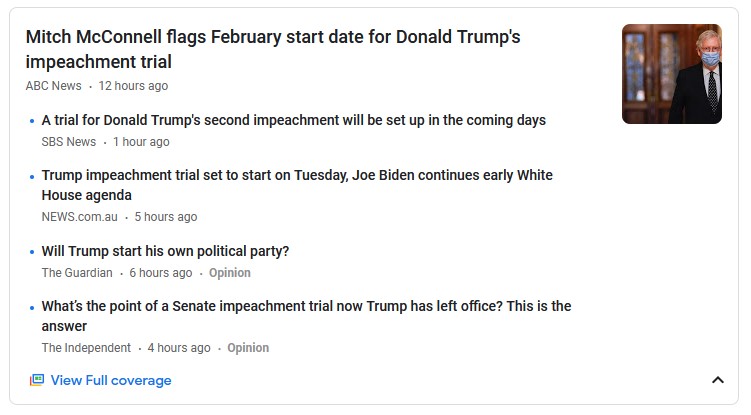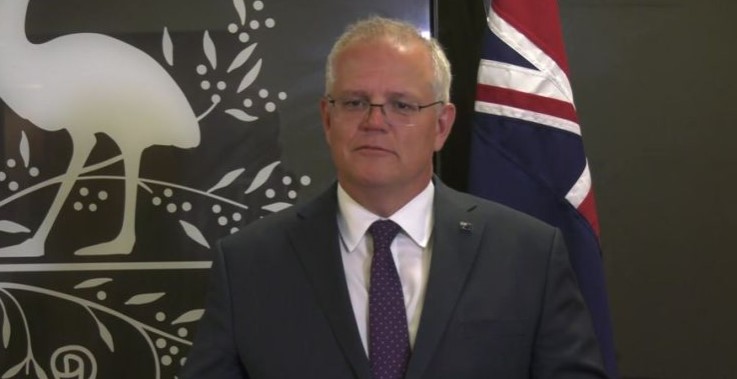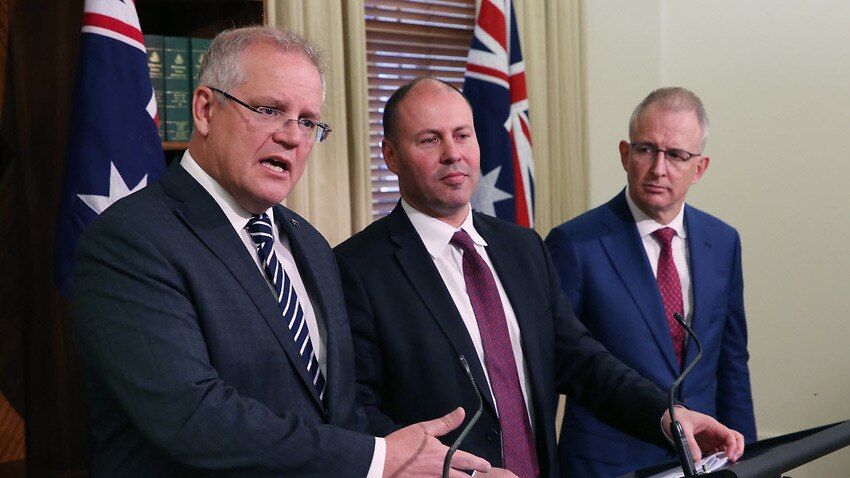Let us be very clear: Scott Morrison and his conservative government present a clear and present danger to the internet that we use in Australia, and his proposed media code will irreparably harm the internet experience of a generation.
What is the proposed media code
If you believe politician speak, the code is a good thing for Australia. In their joint media release in early December, Treasurer Frydenberg and Communications Minister Fletcher announced that the code will address the bargaining imbalance between news media businesses and media platforms.
It will ensure that news media businesses are fairly paid for the content they generate, helping to sustain public interest journalism in Australia.
It will do this in a few ways, by:
- encouraging the parties to undertake commercial negotiations outside the Code;
- enabling digital platforms to publish standard offers, which provides smaller news media businesses with an efficient pathway to finalising agreements with digital platforms;
- establishing a negotiation framework under the Code that allows both parties to bargain in good faith and reach binding agreements;
- ensuring that an independent arbiter is able to determine the level of remuneration that should be paid under a fair and balanced final offer arbitration model should the parties be unable to reach agreement; and
- setting clear and workable minimum standards for digital platforms including requiring 14 days advance notice of deliberate algorithm changes that impact news media businesses.
The code will initially apply to Facebook NewsFeed and Google Search, though other tech giants are clearly in the government’s sights.
In simple terms, the code is apparently about protecting Australian news media.
Unfortunately, it does everything but.
What’s wrong with the media in Australia?
For starters, much of the media consumed in Australia is ultimately owned by very few people who are both powerful and wealthy.
In terms of major media outlets, you’ve got the News Limited brands (which include things like the Daily Telegraph, News.com.au, the Australian, and so on) which are ultimately owned by Rupert Murdoch’s News Corporation. These brands also include Foxtel, Sky News and a few other bits and pieces.
It’s worth noting that, while born here, Murdoch has been an American citizen since 1985.
Then there’s the Nine Entertainment Co brands, which include Fairfax newspapers (Sydney Morning Herald, The Age in Melbourne, the Australian Financial Review etc) as well as a wealth of TV and radio spots, such as the 9 network of TV stations, radio stations 2GB, 3AW, 4BC, 6PR and a pile of online properties too.
These two conglomerates control a significant portion of Australia’s mass media. While there are other players, none are of the same size. For example, Murdoch’s newspapers account for two thirds of metropolitan distribution in 2020, and Nine Entertainment’s account for about a quarter – that’s over 90% in two hands.
These companies have cemented their position in Australia and have done their level best to scrub out (or acquire) alternative voices. Just last year, the 85 year old Australian Associated Press (or AAP) was very nearly shuttered, after its two dominant stakeholders decided it wasn’t worth running anymore.
Why?
They knew that closing AAP would wreak havoc upon smaller media outlets that rely on AAP for day to day reporting, and this includes our national broadcaster the ABC.
So. You’ve got a media landscape controlled by two extremely dominant players, with smaller independents and others hanging around the outskirts. Remember that.
What is the media code seeking to change?
Primarily, the code forces two major international companies – Facebook and Google – to pay revenue to two major companies, one that isn’t even based in Australia, and one that barely needs the financial assistance the code will force.
In very simple terms, the code will force Facebook and Google to pay money to the two major media outlets (and a good number of other media players as well) for the right to link to their content.
To be clear: Facebook and Google do not host the content, images, or anything else. They do not brand it as their own content. They don’t do an awful lot with it that directly benefits them (except show it on a platform that displays ads which they derive a benefit from).
Here’s what a Google News item looks like:

It displays headlines, a news source, roughly when it was published, and usually a small photo / thumbnail from the headline source. Facebook news does broadly the same, though it may include a brief excerpt from the story.
In each case, readers wanting to learn more have to click through to the news source, and they can read the story on the media organisation’s page (which is in often monetised by that organisation).
So, by having their content surfaced on Google and Facebook, media organisations get readers through to their websites which earns them money. Pretty simple.
In fact, a lot of the internet works this way. Publishers – like us – write stories, display ads, and get paid a little for each page view. Those page views add up, as does the advertising revenue, and it makes some websites profitable, and it allows some others to merely exist.
Most of the internet does not seek to be paid by Google or Facebook for linking to their content. In fact, most of the internet does not seek to be paid by anyone linking to their content.
Linking to content is, you see, a fundamental concept of the modern internet, and without it – or, should we say, the ability to do so without having to pay the page you’re linking to – the internet simply would not function.
Thus, what the media code is seeking to do is to make Google and Facebook pay money to media publishers for the right to link to their content.
In other words, by pushing for this code, media publishers want to be paid not only for their content (by readers viewing it and viewing ads, or by paying for subscriptions), but also paid by Google and Facebook for .. you guessed it .. making their content more visible to readers who will visit their pages and earn them money.
Put simply, they want to be paid to have business directed their way so they can make money.
That I can think of, there are absolutely no other industries that get paid this way, and definitely none that the government mandates be paid this way.
Most often, it’s the other way around; a business pays for exposure, advertising, leads etc, and then they try to convert the incoming interest to business and then to earnings.
What the media companies want is the leads, to be paid to have leads introduced to them, and to be paid (or earn money) when the leads come.
It’s absolutely ludicrous, and unheard of.
Who does this proposed code benefit?
It benefits News Corp and Nine Entertainment Holdings.
As they control the majority of the media landscape in Australia (and produce a huge amount of online news content), they stand to gain most benefit from the code by Google and Facebook being forced to give them money.
Who doesn’t benefit? Independents. Those who don’t meet the turnover requirements to be included in the media code.
How does it hurt them?
Those businesses which are not able to be registered under the proposed code are not able to bargain with Facebook nor Google, and not able to reach a payment agreement. However, this isn’t actually the problem. You see, most of us aren’t greedy media conglomerates that want to be paid in this way.
It actually hurts us in a much more insidious way. Let me introduce you to section 52ZC of the proposed code.
Section 52ZC – Digital service to be supplied without differentiation
(1) This section applies if a responsible digital platform corporation for a designated digital platform service, either by itself or together with other corporations, operates or controls a digital service (whether or not the designated digital platform service).
(2) The responsible digital platform corporation must ensure that the supply of the digital service does not, in relation to crawling, indexing, making available and distributing news businesses’ covered news content […]
The rest of the section isn’t entirely relevant, except to note that it basically requires digital platforms – Google and Facebook – to host news content without regard to whether that content comes from:
- A registered media business that has a payment agreement in place
- A registered media business without such an agreement
- A registered media business going through an arbitration process, or
- A non-registered media business
In other words, if you’re hosting news content, you host all news content, or you host none.
It is this which poses a massive threat to the way the internet works in Australia.
Google has said it will pull Google Search out of Australia entirely should this code proceed
Google Australia’s managing director has made clear that the media code would fundamentally disrupt Google’s service offering in Australia.
In a parliamentary hearing into the proposed code, Mel Silva told the hearing that the proposed scheme is unworkable, and would be untenable for Google.
“The principle of unrestricted linking between websites is fundamental to search and coupled with the unmanageable financial and operational risk,” she said.
“If this version of the code were to become law it would give us no real choice but to stop making Google Search available in Australia.
“This is our worst-case scenario, we do not want to be in this situation, we would love to get to an outcome where there is a workable outcome for all parties.”
In other words, Google Search will leave Australia. What does this mean?
- No Google Search for Australia (duh)
- Australian news businesses not indexed and not returned in search results, otherwise Google is in breach of the code
- No local search results, whether for news content or otherwise
It could also mean reduced advertising revenue to Australian businesses, because:
- News media wouldn’t be surfaced on Google, and so would receive less traffic, and earn less revenue
- Advertisers would be less keen to advertise on Google’s platform, because less of their ads are likely to be seen
Facebook has made the same comment. The company’s vice president of public policy has commented that Facebook had three main concerns with the policy. One, it would be unworkable to have commercial agreements with every single registered news business. Second is the process of binding arbitration instead of good faith commercial negotiation, and third – and perhaps most serious – is the non-differentiation clause, which would “prevents [Facebook] from offering commercial terms to certain publishers and changing how we display their content regardless of whether we agree a deal.”
“It means if one publisher is out, all Australian publishers are out.”
This is the most insidious, evil outcome of the digital media code.
What happens when Google and Facebook stop surfacing Australian news?
If the digital media code encourages Google and Facebook to pull their news-surfacing services out of Australia, what happens?
For starters, most online-only independent media will completely disappear. Not appearing in the two most dominant traffic sources means readership dries up, advertising revenue disappears and businesses collapse.
Those with big enough names to survive will do so, but likely with significantly tighter budgets, shrinking news rooms and reducing quality. This is hardly the support of Australian media that the government would have you believe the digital media code is meant to provide.
So, with independents broke or out of business, who stands to gain?
News Corp and Nine Entertainment of course. If there’s nowhere else to get news, where else will you get it?
Ask yourself, who does that serve? Apart from those conglomerates, it serves the government’s interests too. Fewer voices, fewer independents means fewer questions, less criticism and critique, less investigation and balance.
It’ll be an absolute disaster for us.

Scott Morrison has responded, by lecturing Google and Facebook on how laws are made
Our prime minister clearly doesn’t care much for the threats of Google or Facebook, offering the following comments to ABC News:
“Let me be clear, Australia makes our rules for things you can do in Australia. That’s done in our Parliament.”
“It’s done by our Government and that’s how things work here in Australia, and people who want to work with that, in Australia, you’re very welcome.”
“But we don’t respond to threats.”
And that, fundamentally, is the problem. Sure, don’t respond to threats, but perhaps also you shouldn’t be lecturing tech giants on how laws are made when perhaps you don’t understand what government should be doing, instead of doing things it shouldn’t.
What should a government do, and what will happen if it does what it shouldn’t?
A government is responsible for protecting its citizens, for upholding rights and laws, and enforcing them against those who transgress. A government is meant to be for the people (the majority of them) and not for the benefit of a few.
This media code does nothing to benefit the majority. I’m not sure that it does anything to benefit anyone much.
This code represents an extraordinary market intervention, ostensibly to address an imbalance of negotiating power. By seeking to direct how a private company must negotiate with a cabal of media interests, the government is in unprecedented territory, and the proposed intervention should send a shiver down everyone’s spine.
The government claims that the code will ensure “the Australian economy is able to take full advantage of the benefits of digital technology while protecting a strong and sustainable Australian news media”.
A strong and sustainable Australian news media is not created or protected by forcing Google and Facebook to pay a subset of Australian media – mostly that subset owned by wealthy corporations – for linking to their content.
A strong and sustainable Australian news media is created and protected by strong media ownership laws, ensuring that lots of voices are heard instead of only those owned by News Corp or Nine Entertainment. It is fostered by ensuring that independents and smaller publishers are also able to have their news indexed and made available through digital platforms, instead of encouraging digital platforms – the lifeblood of many websites – to leave Australia over an ill-conceived law designed to line the pockets of the wealthy.
The fundamental premise of this law – that digital platforms should pay news organisations merely for the right to link to their content – goes against a fundamental premise of the internet as a whole: one should be free to point to the content of others, facilitating discovery, sharing, development of knowledge and more.
No one should have to pay for that basic tenet of the internet, and the Australian Government would be much better served trying to actually govern for the majority of Australians, instead of governing for the interests of an American billionaire and the shareholders of Nine Entertainment Holdings Co.
We all lose, so that they may become ever so slightly more wealthy.
Bravo, Scott.





I hope Google and Facebook CRUSH this disgusting government
Dinosaurs of all types want the free rides to continue. The old relics need to die if they can’t adapt.
https://www.michaelwest.com.au/internets-founder-us-officials-slap-down-news-and-nines-crusade-on-google/
Hi guys, great informative article. Its nice to hear things explained this way. A different perspective to the media companies mentioned in the article, who constantly go on about Google stealing their content. I only ever found links, and never actual content so could never understand what they were talking about. One thing that in some ways seems to undermine Google though is that they have entered into an agreement with French publishers that seems to do the same as the Australian code. Are you guys familiar with the French situation, and does it differ from the Australian version in… Read more »
From what I understand, the major difference with the France situation, is that Google is actually displaying snippets of the news article content. Whereas here in Australia, they are only hyperlinking the article headline to the publishers own website.
Great article. Very well put. This whole “code” stinks of Scomo lining his mates pockets and does absolutely nothing for maintaining a fair and balanced media, and does absolutely nothing for Australian people. I’m not even convinced it will do anything for News Corp and Nine in all honesty but worst of all it will send smaller media outlets to the wall.
google has become little more than advertising disguised as search results.
The internet is meant to be far far bigger than google and its censorship. Let them leave, there are plenty of other search engines to use – the internet would be better for it.
Why should Google pay for links, but not the other search engines?
Great write-up, the biggies have gone hard at buying everything they can and want to monetise it as much as possible. What does not get any airtime in Aus (not surprisingly) is the media concentration in Sydney, particularly TV. This is all too obvious on “national” TV News and how they cover interstate events and incidents. Weather advice, they’ll be at Bondi beach or Taronga Zoo. A financial story? That will be a reporter standing in Martin Place. An incident in Syd, that will be down to street and suburb. Another capital city will be lucky to be advised as… Read more »
This was a great write-up. More people need to actually listen to independent Media’s input on this situation like this!
I wish more people would pay attention to this.